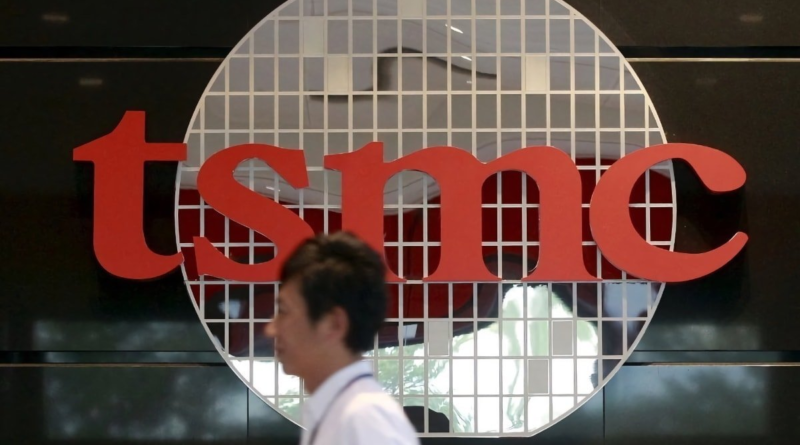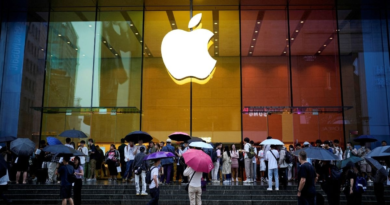Arizona TSMC facility continues to fight cultural battles, rising costs & logistical hurdles – AppleInsider
AAPL: 207.49 ( -2.19 )
Copyright © 2024 Quiller Media, Inc. All rights reserved.
TSMC's Arizona facility grapples with rising costs & logistical hurdles
Apple chip partner TSMC faces significant barriers that impede the Arizona chip fabrication facility’s progress, and the culture clash between American and Taiwanese employees doesn’t seem to be getting batter.
As the world’s leading semiconductor manufacturer, TSMC’s decision to expand into the US was met with widespread approval. Its strategic move is intended to secure supply chains and bring critical manufacturing capabilities closer to key markets.
However, the project is now navigating through rising costs and unforeseen logistical issues that could impact timelines and budgets, according to Rest of World.
TSMC’s Phoenix facility, a pivotal component of US efforts to revitalize domestic semiconductor production, was initially projected to cost $12 billion. However, the project’s expenses are surging due to global supply chain disruptions and inflationary pressures, underscoring its critical role in the industry.
The construction phase of TSMC’s Phoenix facility has encountered a myriad of obstacles. These include difficulties in procuring raw materials and managing an international workforce. Notably, American engineers have struggled with the company’s rigid hierarchies, while Taiwanese veterans have observed a lack of commitment among their American counterparts, highlighting the complexity of the project.
TSMC insiders said the company’s success hinges on a stringent, military-like work culture. Engineers endure 12-hour workdays and often work weekends as well.
The local sourcing of materials has been less than ideal, with many components still needing to be imported from Asia, which adds to costs and logistical complications. Moreover, the project has faced delays in machinery delivery essential for chip manufacturing, which could push back the operational start date.
Effectively addressing the challenges faced by TSMC’s Phoenix facility is not only crucial for the company to meet its projected timelines, but also for the US to establish a more resilient semiconductor supply chain. Failing to do so could lead to significant delays and potential disruptions in the industry.
In the meantime, TSMC is preparing a next-generation 1.8nm chip process. The iPhone is expected to adopt 2nm technology by 2026 with the launch of the iPhone 18 series.
Although TSMC’s 1.6nm technology is anticipated to debut in the same year, it won’t be used in products until 2027.
As the world’s leading semiconductor manufacturer, TSMC’s decision to expand into the US was met with widespread approval. Its strategic move is intended to secure supply chains and bring critical manufacturing capabilities closer to key markets.
However, the project is now navigating through rising costs and unforeseen logistical issues that could impact timelines and budgets, according to Rest of World.
TSMC’s Phoenix facility, a pivotal component of US efforts to revitalize domestic semiconductor production, was initially projected to cost $12 billion. However, the project’s expenses are surging due to global supply chain disruptions and inflationary pressures, underscoring its critical role in the industry.
The construction phase of TSMC’s Phoenix facility has encountered a myriad of obstacles. These include difficulties in procuring raw materials and managing an international workforce. Notably, American engineers have struggled with the company’s rigid hierarchies, while Taiwanese veterans have observed a lack of commitment among their American counterparts, highlighting the complexity of the project.
TSMC insiders said the company’s success hinges on a stringent, military-like work culture. Engineers endure 12-hour workdays and often work weekends as well.
The local sourcing of materials has been less than ideal, with many components still needing to be imported from Asia, which adds to costs and logistical complications. Moreover, the project has faced delays in machinery delivery essential for chip manufacturing, which could push back the operational start date.
Effectively addressing the challenges faced by TSMC’s Phoenix facility is not only crucial for the company to meet its projected timelines, but also for the US to establish a more resilient semiconductor supply chain. Failing to do so could lead to significant delays and potential disruptions in the industry.
In the meantime, TSMC is preparing a next-generation 1.8nm chip process. The iPhone is expected to adopt 2nm technology by 2026 with the launch of the iPhone 18 series.
Although TSMC’s 1.6nm technology is anticipated to debut in the same year, it won’t be used in products until 2027.
Andrew is a writer and commentator who has been sharing his insights on technology since 2015. He has authored numerous online articles covering a range of topics including Apple, privacy, and security. Andrew joined …
If you have ever seen this facility , it is construction on a massive scale and is a long way along.
It is not some empty lot or hole in the ground TSMC can walk away from. Culture clash or not, they have to make it work.
I’d love to see intel regain the process lead and win apples foundry business.
blastdoor said:I’d love to see intel regain the process lead and win apples foundry business.Why? Intel was always slow to improve their products. They always run hot as well.
Why? Intel was always slow to improve their products. They always run hot as well.
It doesn’t surprise me there’s a culture clash in Arizona, especially in today’s rancid political environment. A decade ago we would have welcomed TSMC like we have welcomed Japanese automakers. Not any more and it’s not TSMC’s fault.
TSMC insiders said the company’s success hinges on a stringent, military-like work culture. Engineers endure 12-hour workdays and often work weekends as well.
An most Americans don’t want to do that. Not really surprising, given our history.
Less than five months after Apple Vision Pro launched, Apple has revealed visionOS 2. Here are many of the major changes coming to Apple's spatial computing headset.
Developers will get a first look at Apple's new iPhone Mirroring and SharePlay screen sharing as soon as next week, according to an Apple spokesperson.
Steeper discounts are in effect on Apple's current 14-inch MacBook Pro, with every M3 Pro and M3 Max configuration up to $650 off. Plus, grab a bonus discount on three years of AppleCare with coupon.
Apple isn't releasing Apple Intelligence and other major operating system changes in the EU, because of Digital Markets Act interoperability mandates.
Subscription games service Antstream Arcade is about to bring its catalog of over 1,300 retro titles to the iPhone for a low monthly fee.
It's still only in beta, and there still isn't any sign of Apple Intelligence, but after more than week with iOS 18, there's a lot of good and a little bad to say about Apple's latest iPhone operating system.
A bunch of big Mac games like "Death Stranding" and "Resident Evil Village" are discounted in the Mac App Store, with some being offered at well below half price.
The current Apple Milton Keynes store in the UK is about to close ahead of a new, expanded one opening on June 29, 2024.
The Dockcase Studio Smart USB-C Hub 8-in-1 can read the latest memory cards, which is good, but confusingly has an integrated display.
Blackmagic Design wants to take the lead in creating video for the Apple Vision Pro, by making an end-to-end workflow for filming and editing Apple Immersive Video.
Camera maker Canon has brought out another dual fisheye lens for its RF-S cameras, which could be used to make 3D video for the Apple Vision Pro.
{{ summary }}

